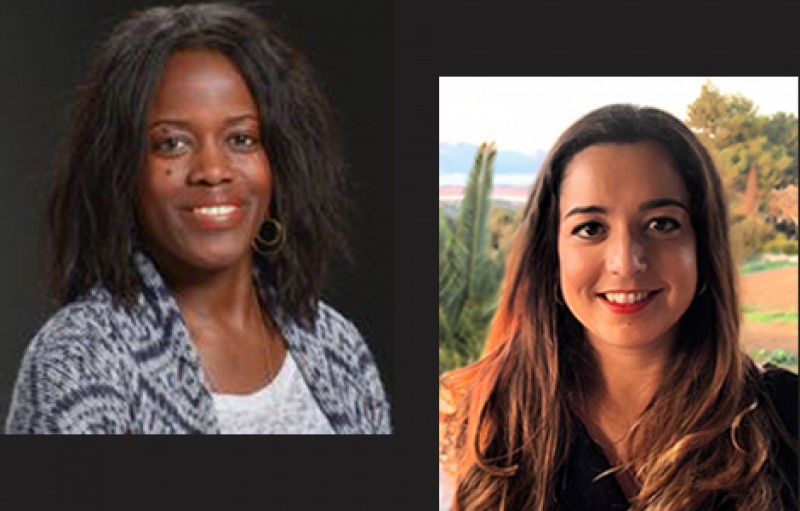KLI Colloquia are invited research talks of about an hour followed by 30 min discussion. The talks are held in English, open to the public, and offered in hybrid format.
Join via Zoom:
https://us02web.zoom.us/j/5881861923?omn=85945744831
Meeting ID: 588 186 1923
Spring-Summer 2026 KLI Colloquium Series
12 March 2026 (Thurs) 3-4:30 PM CET
What Is Biological Modality, and What Has It Got to Do With Psychology?
Carrie Figdor (University of Iowa)
26 March 2026 (Thurs) 3-4:30 PM CET
The Science of an Evolutionary Transition in Humans
Tim Waring (University of Maine)
9 April 2026 (Thurs) 3-4:30 PM CET
Hierarchies and Power in Primatology and Their Populist Appropriation
Rebekka Hufendiek (Ulm University)
16 April 2026 (Thurs) 3-4:30 PM CET
A Metaphysics for Dialectical Biology
Denis Walsh (University of Toronto)
30 April 2026 (Thurs) 3-4:30 PM CET
What's in a Trait? Reconceptualizing Neurodevelopmental Timing by Seizing Insights From Philosophy
Isabella Sarto-Jackson (KLI)
7 May 2026 (Thurs) 3-4:30 PM CET
The Evolutionary Trajectory of Human Hippocampal-Cortical Interactions
Daniel Reznik (Max Planck Society)
21 May 2026 (Thurs) 3-4:30 PM CET
Why Directionality Emerged in Multicellular Differentiation
Somya Mani (KLI)
28 May 2026 (Thurs) 3-4:30 PM CET
The Interplay of Tissue Mechanics and Gene Regulatory Networks in the Evolution of Morphogenesis
James DiFrisco (Francis Crick Institute)
11 June 2026 (Thurs) 3-4:30 PM CET
Brave Genomes: Genome Plasticity in the Face of Environmental Challenge
Silvia Bulgheresi (University of Vienna)
25 June 2026 (Thurs) 3-4:30 PM CET
Anne LeMaitre (KLI)
KLI Colloquia 2014 – 2026
Event Details

Register in advance for this meeting:
https://us02web.zoom.us/meeting/register/tZUtd-ipqjMvEtDNG_4XsxDki6xA0Hkhv-yc
After registering, you will receive a confirmation email containing information about joining the meeting.
Topic description / abstract:
Dr. Marga Gual Soler and Dr. Mandë Holford are guest co-editors of the AAAS Science & Diplomacy journal special issue on Future-Casting Science Diplomacy In this talk they will reflect on the effects that the COVID-19 pandemic has had on the relationship between science and diplomacy, and on the ideas proposed by contributors to this special edition. The pandemic has been a stress test for the emerging field of science diplomacy, triggering a reckoning of how transnational crises of planetary scale—infectious diseases, the looming climate crisis, biodiversity collapse, ocean governance—interlink humanity’s destiny. National responses to the crisis exposed a profound disconnect between the scientific and foreign policy domains and underscore the urgency of bringing science from the margins to the center of global policy. While international research collaboration thrived and achieved unprecedented breakthroughs at record speed, many world leaders ignored scientific recommendations and retreated from multilateral coordination, resulting in fragmented and contradictory measures. These governmental responses manifested the inadequacy of current multilateral science-policy interface structures to address the challenges facing humanity and the planet. With effective vaccines now available, the end of the pandemic is in sight, but vaccine diplomacy is being revealed as a battle for international leadership and geopolitical influence. This talk will explore the science diplomacy dimensions of the pandemic from different regions, stakeholders, and sectors, as they relate to preparedness, management, and recovery. Drs. Gual Soler and Holford will discuss issues related to the geopolitics of science, the education of the next generation of scientists and diplomats, the need for updated global governance frameworks to tackle transnational challenges, how to decolonize international research collaboration, and building robust science-policy interfaces to strenghten multilateralism.
Biographical notes:
Dr. Marga Gual Soler is a molecular biologist and the founder of SciDipGLOBAL. She is a member of the S4D4C project, advisor to the European Union-Horizon 2020 Science Diplomacy Cluster, visiting professor at the National Autonomous University of Mexico (UNAM), and a Young Global Leader of the World Economic Forum (WEF). Previously she was a senior project director at the AAAS Center for Science Diplomacy and a high-level advisor to the European Commissioner for Research, Science and Innovation, Carlos Moedas. She holds a Ph.D. in Molecular Cell Biology from the University of Queensland in Australia.
Dr. Mandë Holford is an associate professor in Chemistry at Hunter College and CUNY-Graduate Center, with scientific appointments at The American Museum of Natural History and Weill Cornell Medicine. Her research examines venoms and venomous animals as agents of change and innovation in evolution and in manipulating cellular physiology in pain and cancer. She co-founded Killer Snails, LLC, an award-winning EdTech company. She has been named a 2020 Sustainability Pioneer by the World Economic Forum (WEF), Breakthrough Women in Science by the Howard Hughes Medical Institute and NPR’s Science Friday, a Wings WorldQuest Women of Discovery fellow, and a fellow of the California Academy of Sciences. Her Ph.D. is from The Rockefeller University, USA.


